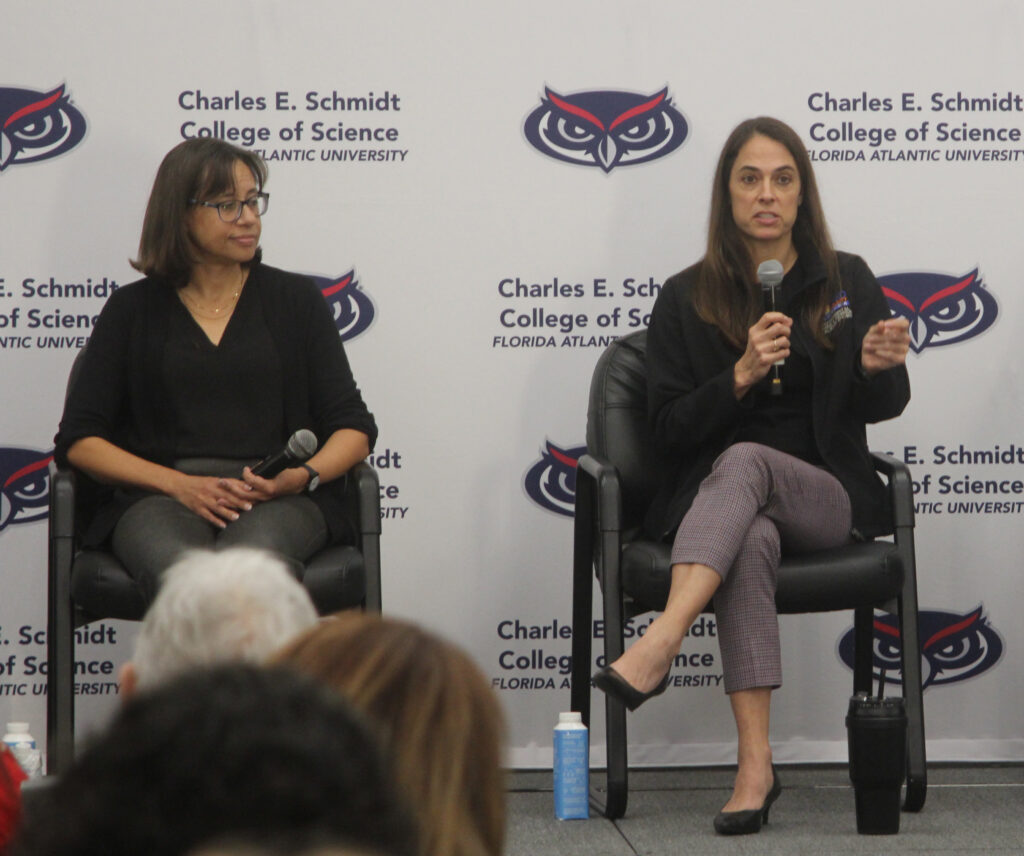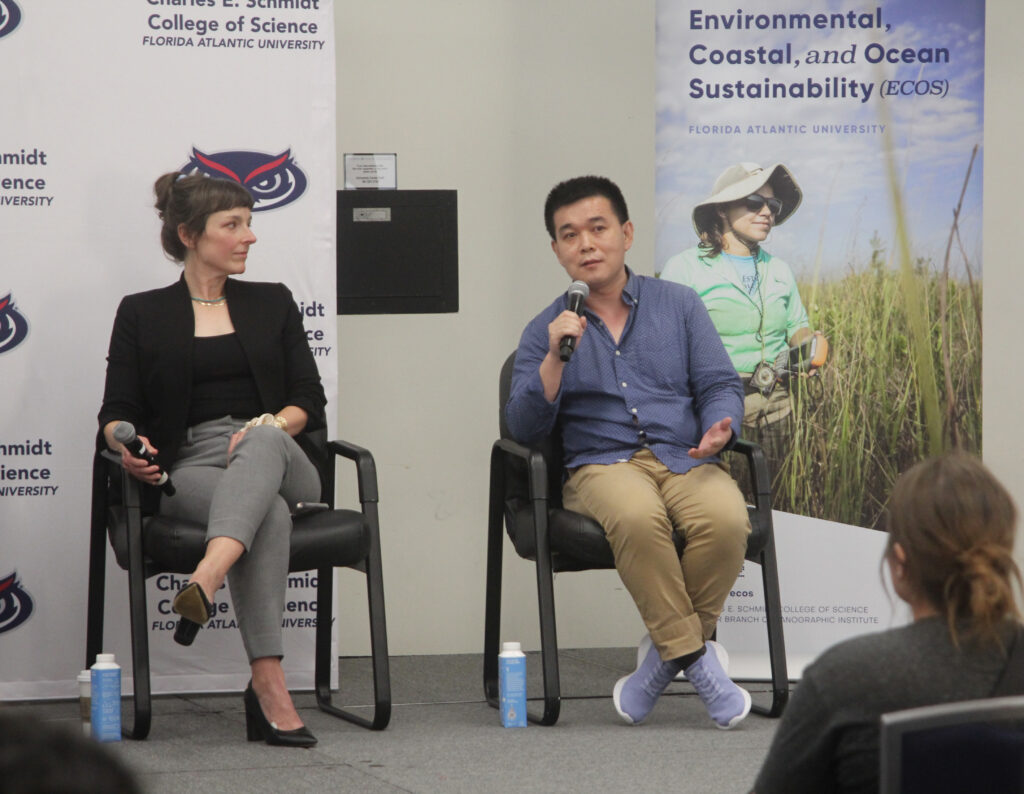By Morgann Rhule, The Invading Sea
As climate change accelerates, coastal communities face urgent challenges. Rising sea levels, more intense storms and ongoing environmental degradation threaten the stability of these regions, highlighting the need for adaptive solutions.
During a recent panel discussion on “Future-Proofing Our Coasts” at Florida Atlantic University as part of the Frontiers in Science Public Lecture Series, experts outlined strategies for protecting shorelines, emphasizing resilience measures and community engagement.
“We used to think of resilience in a reactive way” but now it is more about preparing for change and having the capacity to absorb changes, said Serena Hoermann, interim director for FAU’s Center for Urban and Environmental Solutions.

Broward County Chief Resilience Officer Jennifer Jurado said resilience is “about focusing holistically on risk reduction.
“It is about reducing the magnitude of the impacts, the duration of those impacts and the consequences of those impacts,” Jurado said.
Jurado highlighted the importance of an informed community, saying that accessible information empowers people to take an active role in decision-making. By staying informed, communities can contribute to resilience efforts while advocating for solutions that best address their needs.
“We won’t eliminate (the impacts) altogether,” Jurado said, but collaboration and long-term planning can help communities tackle future challenges effectively.
Stephanie Wakefield, an assistant professor with the Department of Urban and Regional Planning at FAU, spoke about transformative resilience. The idea is not only recovering from disasters but using the experience to make improvements.
“We can do more than just bounce back from disasters; we can bounce forward,” Wakefield said.
She envisions a resilient South Florida as a vibrant aqua-urban region where people and nature are seamlessly interconnected, making the natural world a fundamental part of everyday life.

“Nature is infrastructure,” said Wakefield, underscoring the crucial role that natural systems play in supporting and strengthening our built environments.
She emphasized that integrating nature into urban planning is an environmental necessity for creating sustainable and resilient communities.
One example is tidal flats. Weibo Liu, an associate professor in the FAU Department of Geosciences, said these coastal wetlands act as buffers against storm surges, help prevent erosion and support biodiversity. Their benefits extend beyond environmental protection, playing a vital role in the long-term sustainability of coastal communities and economies.
“Tidal flats could bring a lot of economic benefits to the residents in a coastal area, for example, the fisheries and agriculture,” Liu said.
However, he warned that the degradation of these ecosystems compromises their ability to provide essential services, leaving communities more vulnerable to climate-related disasters.
But communities can play a huge role in restoration efforts. Wakefield said that “restoration of shorelines, of tidal flats, of lagoons can be opportunities for people to learn and get more connected about their environments by being involved in the restoration process itself.”
Morgann Rhule is a senior majoring in multimedia journalism at FAU who is reporting for The Invading Sea during the spring 2025 semester. Banner photo: A view of the full panel (Photo by Zach Greathouse/FAU Charles E. Schmidt College of Science).
Sign up for The Invading Sea newsletter by visiting here. To support The Invading Sea, click here to make a donation. If you are interested in submitting an opinion piece to The Invading Sea, email Editor Nathan Crabbe at nc*****@*au.edu. To learn more about climate resilience, watch the video below.



